Andrew Yang's 2020 Dark-Horse Presidential Platform
Can his out-there policies take him all the way to White House?
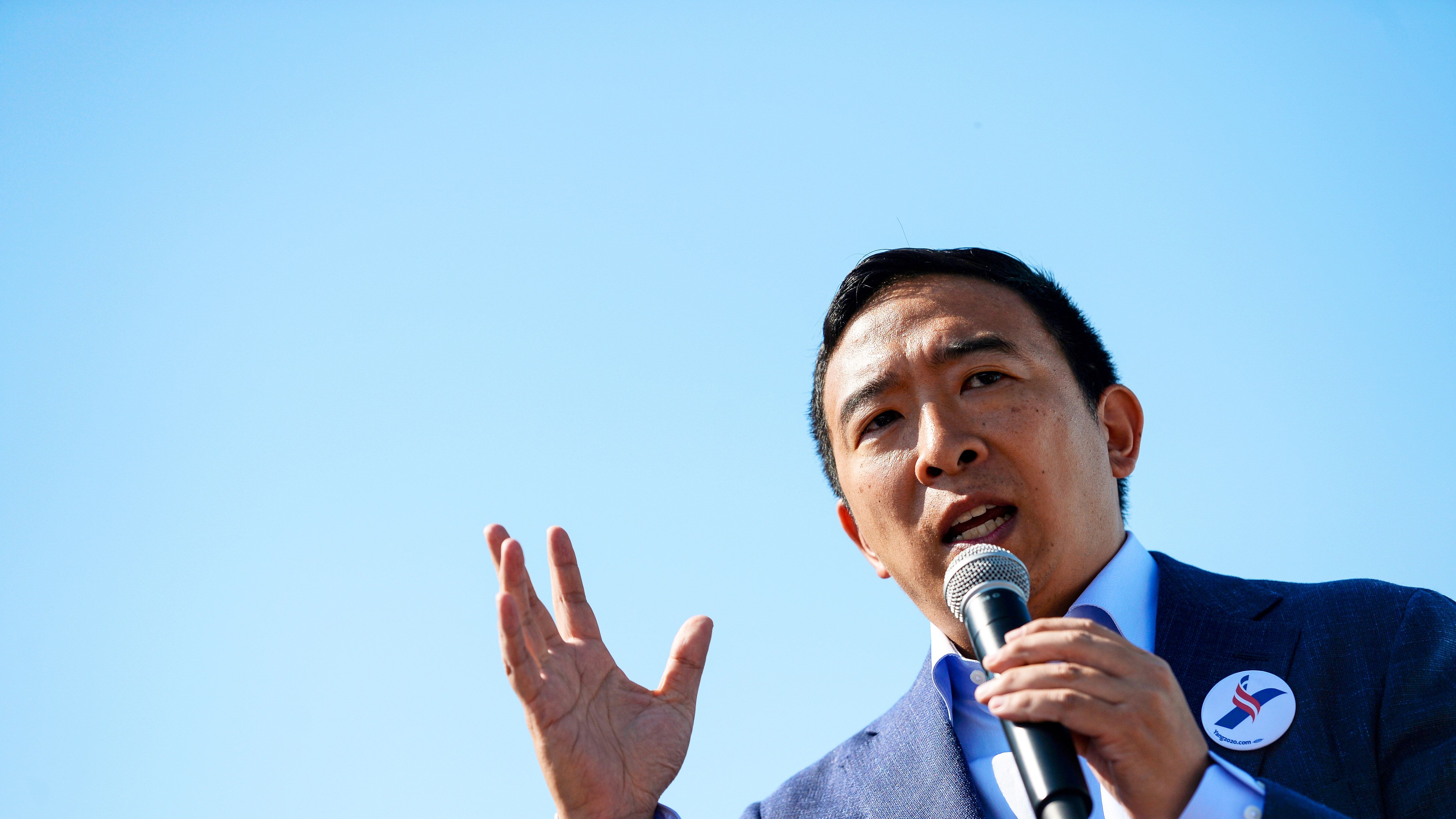
Unless you've been living (or hiding—totally relatable in our current political climate) under a rock for the past couple of months, you've probably heard that literally everyone is running for president. Okay, so I'm exaggerating, but only mildly; more than 20 different politicians initially entered the 2020 presidential race to unseat Donald Trump in the White House, with most of them gunning for the Democratic nomination. In a literal crowd of seasoned politicians with decades of law-making and upholding under their belts, 2020 candidate Andrew Yang's policies often get lost in the political sauce.
From Instagram to The Ellen Show to the main debate stage, our Democratic candidates have made sure to use their time in the limelight to share what they hope to do if elected to the highest office in the land. Many of them are familiar faces with policies that you're (hopefully) well-acquainted with by now. Elizabeth Warren and Bernie Sanders, possibly the farthest left-leaning of the pack, are both in favor of universal healthcare and free college. Kamala Harris wants to get rid of the electoral college and ban fracking. Cory Booker wants to increase federal aid for students to decrease debt. And Joe Biden wants to "restore the soul" of the United States...whatever that means.
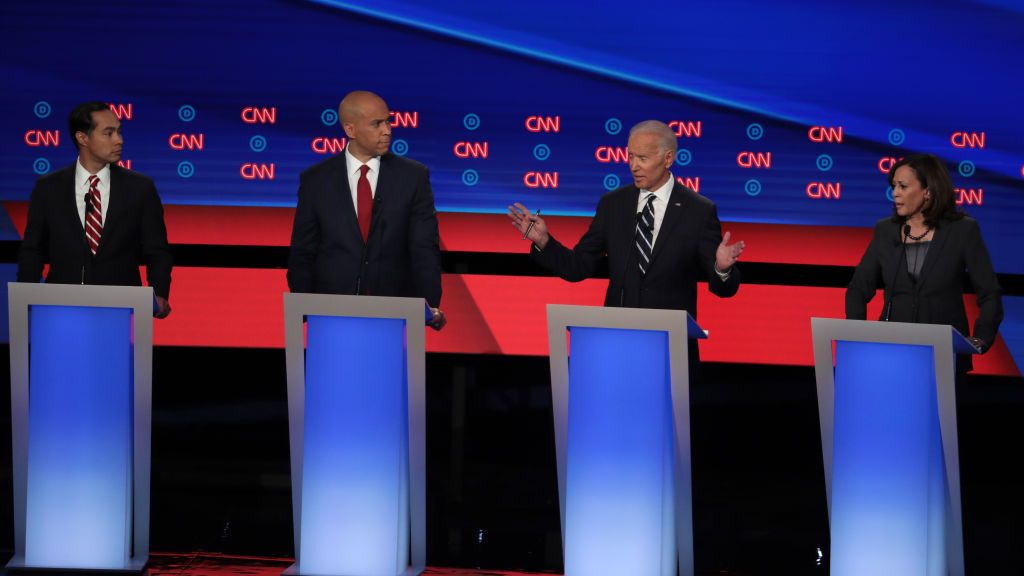
Still, if you're tired of the same old, same old in Washington, there are a couple of key points about Yang's campaign that you might want to pay special attention to. Here's the breakdown of some of the most important policies that the New York businessman plans to execute if elected President of the United States.
The Freedom Dividend
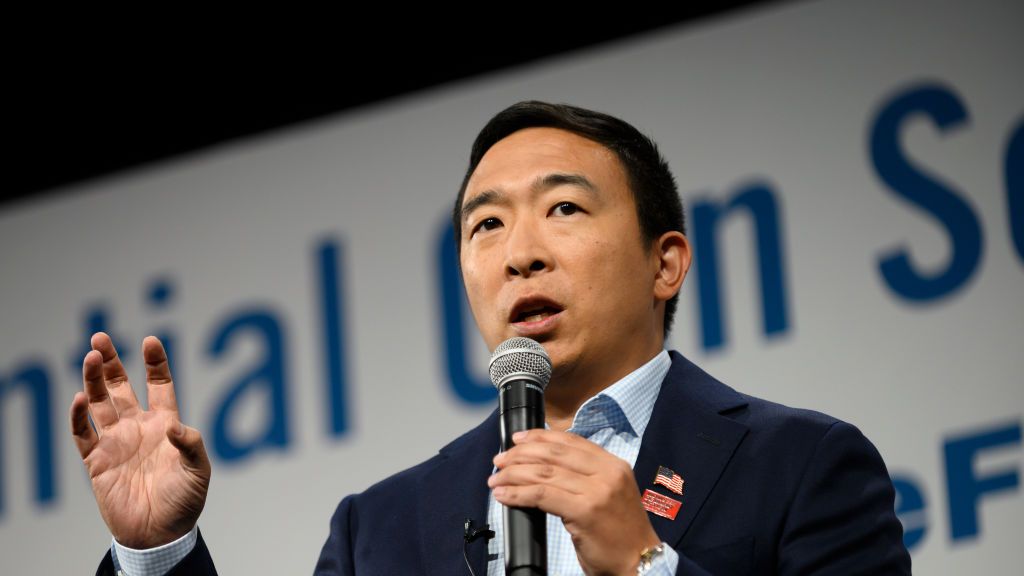
In what many consider to be one of the most radical policies in the 2020 election, Yang is proposing the implementation of universal income. Called "the freedom dividend," the universal income would be a baseline number of $1,000 per month for every American between the ages of 18 and 64, regardless of the factors that usually effect one's income and overall quality of life such as economic class, profession, gender, and race. The freedom dividend, says Yang, will allow citizens to take care of their basic needs.
Sure, getting a stack from the government every month sounds cool, but what's the catch? Well, taxes on goods and services would have to go up in order for the freedom dividend to work. The increased taxes that major companies like Apple and Microsoft would have to pay the government would then be funneled into the funds for the universal income. So that monthly check would probably come with some higher prices on some of your favorite products.
Medicare for All
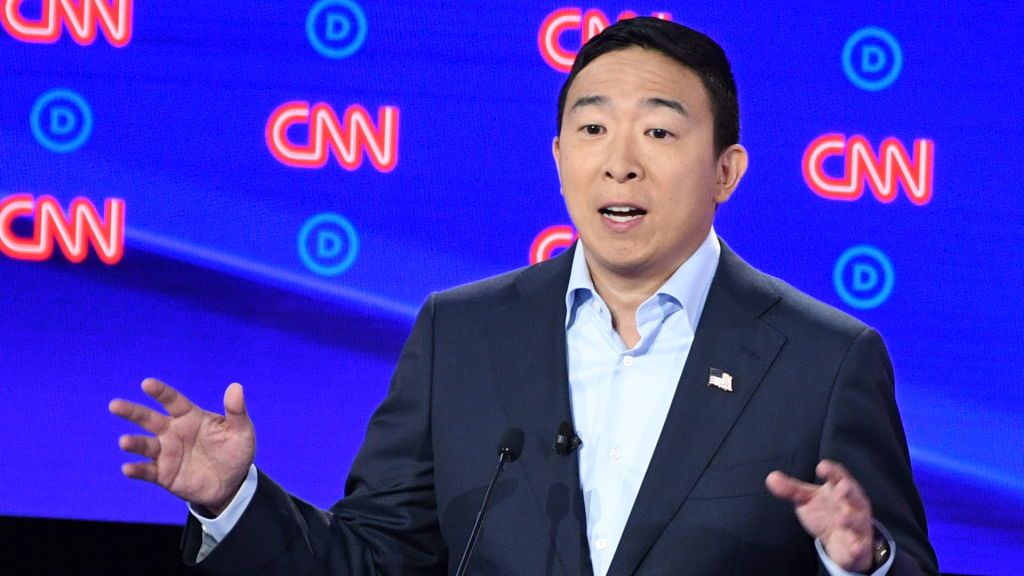
The United States is a major player in the international sphere but has one of the most ineffective and inefficient healthcare systems in the world. Statistics from a recent study conducted by the Organization for Economic Co-operation and Development (OECD) state that, compared to countries like the United Kingdom, France, Australia, and the Netherlands, the U.S. has a lower rate of amenable mortality; this means that there are more preventable deaths in this country due to limited access to and quality of healthcare. Needless to say, the system is in desperate need of repair, if not total overhaul.
As a businessman, much of Yang's perspectives towards healthcare are informed by his history of being an employer who had to provide healthcare for his employees. He discussed the concept in his book The War on Normal People:
Get exclusive access to fashion and beauty trends, hot-off-the-press celebrity news, and more.
"Our job-based health insurance system does the very thing we most want to avoid – it discourages businesses from hiring. For employers, company-subsidized health insurance costs are a major impediment to hiring and growth. The costs get very high for senior people with families – my last company was spending more than $2,500 a month on certain people’s insurance plans. If these costs weren’t on our books we definitely would have hired more people. Health insurance also pushes companies to make as many employees as possible into part-time gig workers or contractors."
Like Sanders and Warren, Yang wholeheartedly supports the idea of Medicare for All. This plan would involve the democratization of healthcare, meaning that the government would mandate that every American citizen have access to the same type of health insurance. In exchange, everyone's taxes would have to go up to offset the coverage—an idea that many Americans aren't very enthused by.
Human-Centered Capitalism
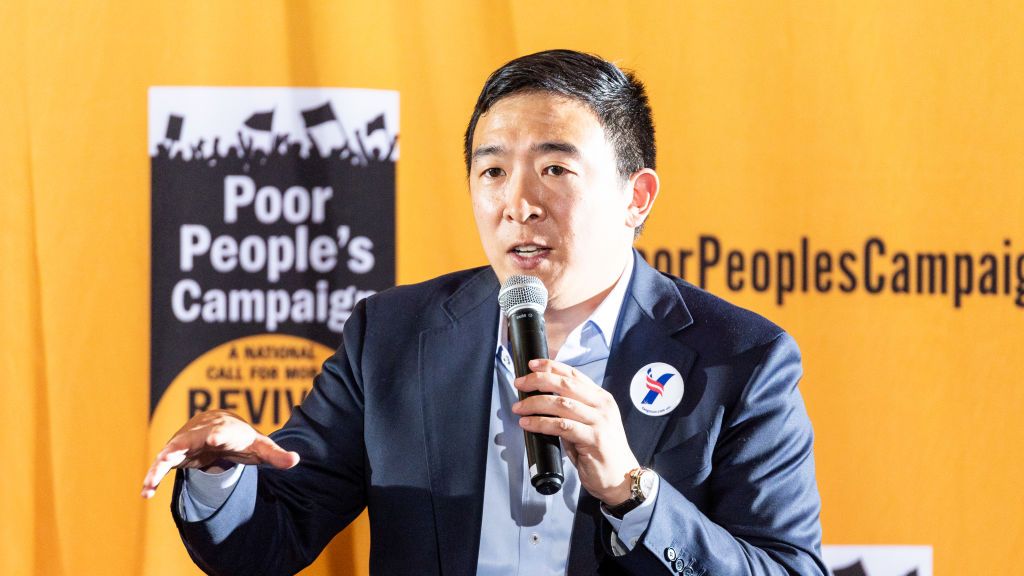
While some of his opponents and their supporters are outrightly rejecting the tenets of standard capitalism (feel the Bern), Yang is encouraging Americans to lean in while embracing a new type of capitalism, one that prioritizes people over the dollar. With human-centered capitalism, the aim will be to improve the economy in order to improve human welfare. Yang suggests that the government take on new ways to measure the success of the economy; he argues that looking at things like social and economic mobility, childhood success rates, and health-adjusted life expectancy is a more practical way of seeing how the economy is doing compared to numbers and dollar amounts.
He also wants to implement a new type of currency, called the Digital Social Credit, that can be converted into actual dollars. It's similar to the Chinese social credit score that made headlines last year, a system that keeps track of the good deeds of Chinese citizens, corporations, and government officials. Yang's idea takes it a step further by monetizing the credit, hypothesizing that the fiscal reward for "driving significant social value" would encourage civilians to contribute to society in a meaningful way, ultimately leading to an overall increase quality of life.
Whether you agree with all of his policies or not (I don't know about you, but that $1k monthly deposit is low-key speaking to me), the fact that Yang has made it this far in the presidential race says a lot about what the country thinks about him. Tonight, we'll see if Yang's radical policies will hold up as he faces down with the other nine Democratic candidates in Houston to talk about the future of the United States—watch it all go down on ABC at 8pm EST.
For more stories like this, including celebrity news, beauty and fashion advice, savvy political commentary, and fascinating features, sign up for the Marie Claire newsletter.
RELATED STORIES
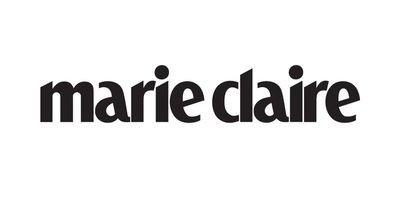
25 Animated Movies Every Adult Should Watch
RELATED STORIES

The 43 Best Musical Movies to Get You Singing
Lagos-born and Houston-raised, Ineye Komonibo is a writer and editor with a love for all things culture. With an academic background in public relations and media theory, Ineye’s focus has always been on using her writing ability to foster discourse about the deep cyclical relationship between society and the media we engage with, ever-curious about who we are and what we do because of what we consume. Most recently, she put her cultural savvy to work as a culture critic for R29 Unbothered, covering everything from politics to social media thirst to the reverberations of colorism across the African diaspora.